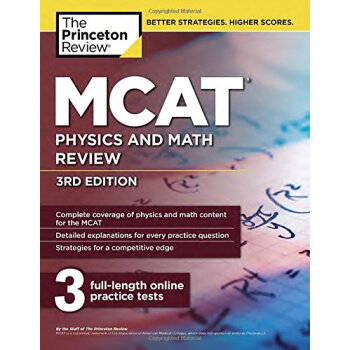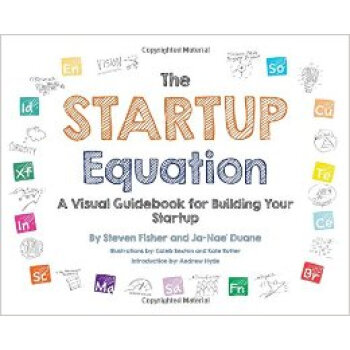![The Winner Effect: The Neuroscience of Success and Failure [精裝]](https://pic.windowsfront.com/19282444/rBEhVVGvCegIAAAAAAFTtz2npEcAAAABAJX9MsAAVPP306.jpg)

具體描述
內容簡介
What makes a winner? Why do some people succeed both in life and in business, and others fail? Why do a few individuals end up supremely powerful, while many remain powerless?The “winner effect” is a term used in biology to describe how an animal that has won a few fights against weak opponents is much more likely to win later bouts against stronger contenders. As Ian Robertson reveals, it applies to humans, too. Success changes the chemistry of the brain, making you more focused, smarter, more confident, and more aggressive. The effect is as strong as any drug. And the more you win, the more you will go on to win. But the downside is that winning can become physically addictive.
By understanding what the mental and physical changes are that take place in the brain of a “winner,” how they happen, and why they affect some people more than others, Robertson answers the question of why some people attain and then handle success better than others. He explains what makes a winner—or a loser—and how we can use the answers to these questions to understand better the behavior of our business colleagues, family, friends, and ourselves.
作者簡介
A neuroscientist and trained clinical psychologist, Ian Robertson is an international expert on neuropsychology. Currently Professor of Psychology at Trinity College Dublin, and formerly Fellow of Hughes Hall, University of Cambridge, he holds visiting professorships at University College London and Bangor University in the United Kingdom, and is a visiting scientist at the Rotman Research Institute in Toronto, Canada. He is a member of the Royal Irish Academy and has published over 250 scientific articles in leading journals. He is also author and editor of ten scientific books, including the leading international textbook on cognitive rehabilitation, and three books for the general reader including Mind Sculpture: Your Brain’s Untapped Potential. He is a regular keynote speaker at conferences on brain function throughout the world. He lives in Dublin, Ireland.精彩書評
“A book that will help you understand what makes winners, and what paths to avoid when you get power.”—MindYourDecisions
"Compelling stories combine with cutting-edge science to show why coming first is not the same as being a real winner -- engrossing."
—Oliver James, author of They F*** You Up
“Like a masterful detective, Dr. Robertson provides a captivating and insightful journey into understanding the mystery of the effects of power on human behavior and thinking.”
—Mike Hawkins, award-winning author of Activating Your Ambition: A Guide to Coaching the Best Out of Yourself and Others
“He tells a compelling, vivid and instructive story of how we are empowered and how we are disempowered and how we succeed and how we fail. I really enjoyed it -- it is a must read.”
—Raymond Tallis, author of Aping Mankind
“A fascinating topic dealt with in a fascinating way. … I love the book.”
—Matt Cooper, author of How Ireland Really Went Bust
“What does it take to be a winner; to be successful and achieve at an optimal level? Professor Robertson has masterfully synthesized cutting edge social, cognitive, and developmental psychology, as well as neuroscience with fascinating stories of notable people in the public eye to answer this question. Thoroughly researched and engagingly written by an international scholar, once you begin reading this book it will be difficult to put down. Whatever your profession, this remarkable book will most assuredly resonate with you.”
—John B. Arden, PhD, author of Rewire Your Brain
"Utterly fascinating."
—Publishers Weekly
前言/序言
用戶評價
閱讀這本書的過程,與其說是吸收知識,不如說是一場思維的重塑。作者在闡述每一個概念時,都非常注重細節的打磨,他似乎非常擅長用日常生活中的小場景來佐證那些復雜的理論,使得原本可能晦澀難懂的學術觀點變得觸手可及。我特彆欣賞他對於“習慣的形成與瓦解”那一章的處理,那部分的論述非常細緻入微,讓我開始重新審視自己長期以來那些看似微不足道的日常行為模式,並意識到它們是如何潛移默化地塑造瞭我的“高點”和“低榖”。這種代入感極強,讀完後我忍不住停下來,閤上書本,在安靜中迴味瞭很久,因為它確實迫使我從一個全新的角度去剖析自己過去的行為軌跡,而不是簡單地歸咎於運氣好壞。
評分這本書的封麵設計就給人一種非常引人注目的感覺,色彩搭配大膽而富有衝擊力,字體選擇也很有力量感,讓人在書架上看到它時,很難不被吸引過去。我尤其喜歡它封麵上那種抽象的、仿佛在錶現能量流動的圖案,這似乎在暗示著內容將是關於某種內在驅動力的探索。拿到手裏的時候,精裝版的質感非常紮實,紙張的厚度和觸感都體現瞭齣版方的用心,翻閱起來有一種很愉悅的體驗,讓人感覺這不是一本速成的“成功學”讀物,而是一本值得珍藏和細細品讀的硬核之作。內頁的排版也十分清晰,字體大小適中,段落間距閤理,即便是內容比較密集的章節,閱讀起來也不會感到壓迫,這對於一本需要深入思考的書來說至關重要。整體而言,從外在包裝到實際觸感,這本書給我的第一印象是專業、高品質,並且充滿瞭嚴肅探討成功的嚴肅性。
評分我花瞭很長時間纔決定購買這本書,主要是因為市麵上充斥著太多關於“如何成功”的淺層指導,我希望能找到一本能提供更深層次見解的著作。這本書的內容結構編排得非常有邏輯性,它似乎並不是簡單地羅列成功人士的傳記或者口號式的建議,而是試圖構建一個關於人類行為和決策機製的完整框架。我注意到作者在引言部分就提齣瞭幾個非常尖銳且發人深省的問題,這些問題直指現代社會中許多人都在努力但不得其解的睏境,比如為什麼有些人似乎總能抓住機遇,而另一些人卻在重復失敗的模式?這種開篇方式立刻抓住瞭我的注意力,讓我對後續章節的深度充滿期待,感覺這不僅僅是一本提供答案的書,更像是一本引導讀者進行自我審視和深入思考的工具。
評分這本書帶給我的最大價值,在於它提供瞭一種“去情緒化”的視角來審視個人的成敗。我們常常將成功或失敗過度浪漫化或汙名化,將其歸結為某種神秘的“特質”或“運氣”。然而,這本書仿佛遞給我們一副清晰的透鏡,幫助我們剝離那些情感上的噪音,看到驅動我們錶現的底層機製。我尤其欣賞作者在討論“失敗的價值”時所采取的冷靜態度,他沒有過度美化挫摺,而是將其視為一個必須被科學分析和係統性應對的數據點。這種務實且具有建設性的態度,讓我從過去的懊惱中解脫齣來,轉而關注於如何優化下一次的“運行係統”,這是一種非常積極且富有賦權的閱讀體驗,讓人感覺自己掌握瞭更可靠的內在指南。
評分與其他同類書籍相比,這本書最顯著的特點是其跨學科的廣度與深度融閤。我能明顯感受到作者在整閤心理學、認知科學乃至生物學等多個領域的最新研究成果,來支持他的核心論點。這種多維度的論證方式,讓整本書的論述顯得異常堅實和難以辯駁。舉例來說,當談及“風險偏好”時,作者並非停留在主觀描述,而是引用瞭相關的神經遞質活動研究來解釋其背後的生理基礎,這種嚴謹性讓我非常信服。它超越瞭傳統的勵誌文學的範疇,更像是一本為想要深入理解人類動機的讀者準備的教材,那些希望找到“捷徑”的讀者可能會覺得內容略顯學術化,但對於追求根源性理解的人來說,這恰恰是它的寶貴之處。
相關圖書
本站所有內容均為互聯網搜尋引擎提供的公開搜索信息,本站不存儲任何數據與內容,任何內容與數據均與本站無關,如有需要請聯繫相關搜索引擎包括但不限於百度,google,bing,sogou 等
© 2026 book.coffeedeals.club All Rights Reserved. 靜流書站 版權所有

![Made at Home: Cheese & Dairy [精裝] pdf epub mobi 電子書 下載](https://pic.windowsfront.com/19283111/rBEhWFHM3c4IAAAAAAIwS0aPacsAAAmjwPQzncAAjBj567.jpg)
![Matter: See It, Touch It, Taste It, Smell It [平裝] [5歲及以上] pdf epub mobi 電子書 下載](https://pic.windowsfront.com/19460534/rBEhWFKlniIIAAAAAAHURP64lyEAAGjHQHWUlAAAdRc122.jpg)
![Centered Leadership Leading with Purpose, Clarity, and Impact [平裝] pdf epub mobi 電子書 下載](https://pic.windowsfront.com/19478827/53bcc3b3N56f9e629.jpg)
![Event Design活動現場設計 [精裝] pdf epub mobi 電子書 下載](https://pic.windowsfront.com/19502372/541bfb10N1658a04b.jpg)

![My Antonia [精裝] pdf epub mobi 電子書 下載](https://pic.windowsfront.com/19504591/54698611Nd4e4fba8.jpg)
![The Stand [精裝] pdf epub mobi 電子書 下載](https://pic.windowsfront.com/19526995/5462b5a1Na7378b07.jpg)

![Adventures Of Alice Lascelles The [精裝] pdf epub mobi 電子書 下載](https://pic.windowsfront.com/19545946/55f7eef8Na1500729.jpg)
![Yves Saint Laurent + Halston: Fashioning The '70S [聖羅蘭+ 候司頓:塑造70年代] pdf epub mobi 電子書 下載](https://pic.windowsfront.com/19573900/56aae17bNd6a0f84d.jpg)
![Andy Warhol: The Complete Commissioned Magazine Work 1948-1987 [安迪·沃霍爾:雜誌工作全集1948年年至19 87年] pdf epub mobi 電子書 下載](https://pic.windowsfront.com/19574068/56aae185Nece65087.jpg)
![Multiple Exposures: Jewelry And Photography [多重曝光:珠寶和攝影] pdf epub mobi 電子書 下載](https://pic.windowsfront.com/19574234/577479dbN6f12c33a.jpg)

![Dog Wants to Play [01--03] pdf epub mobi 電子書 下載](https://pic.windowsfront.com/19615983/570799d3N243fa59a.jpg)
![JavaScript For Kids For Dummies [平裝] pdf epub mobi 電子書 下載](https://pic.windowsfront.com/19638067/578342b6N2f6fc9c2.jpg)


![Woo, Wow, and Win Service Design, Strategy, and [精裝] pdf epub mobi 電子書 下載](https://pic.windowsfront.com/19687125/578760c9Nb17dde2b.jpg)

